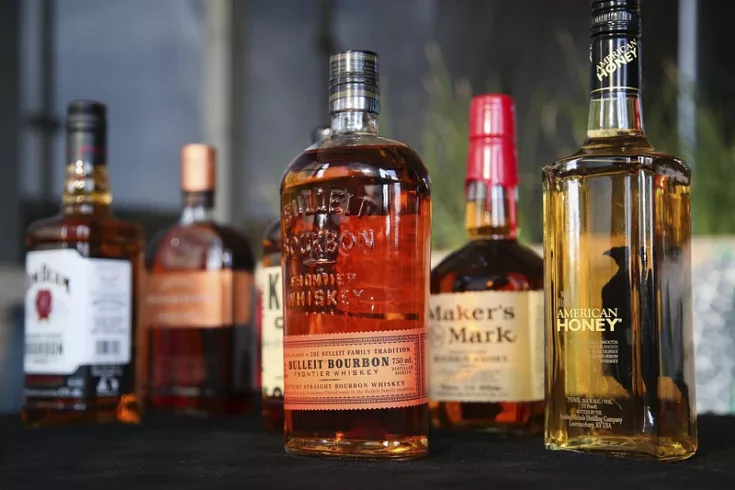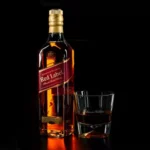
Whiskey is a beloved spirit that has been enjoyed for centuries. With its complex flavors and aromas, it’s no wonder why whiskey enthusiasts are always looking for ways to enhance their drinking experience. One common question that arises among whiskey lovers is whether or not whiskey ages in the bottle.
Whether you’re a seasoned whiskey drinker or just starting to explore the world of whiskey, this article will provide valuable insights into the aging process of this beloved spirit.
Table of Contents
Understanding Whiskey
Whiskey is a distilled alcoholic beverage that is made from fermented grain mash. The grains used to make whiskey can include barley, corn, rye, and wheat. The type of grain used, as well as the distillation and aging process, can greatly affect the flavor and quality of the final product.
Whiskey is typically aged in wooden barrels, which can give it a distinct flavor and color. The length of time that whiskey is aged can also impact its flavor and quality. However, it is important to note that once whiskey is bottled, it does not continue to age in the same way that wine does.
The age statement on a bottle of whiskey refers to the amount of time that the whiskey spent in the barrel before it was bottled. For example, a whiskey with a 10-year age statement means that the youngest whiskey in the bottle is 10 years old. It is possible that some of the whiskey in the bottle is actually older than 10 years, but none of it is younger.
It is also important to note that the age statement on a bottle of whiskey does not necessarily indicate the quality of the whiskey. While older whiskeys are often more expensive, age does not always equate to quality. Other factors, such as the type of barrel used and the distillation process, can also greatly impact the flavor and quality of the final product.
 photo credit: images.rawpixel.com
photo credit: images.rawpixel.com
Whiskey Aging Process
The aging process of whiskey is a complex and critical step in the production of this beloved spirit. From the distillation process to the maturation in oak barrels, each step plays a crucial role in determining the final flavor and quality of the whiskey.
Distillation
The process of distillation is the first step in making whiskey. During this process, the fermented grain mash is heated, and the alcohol vaporizes, leaving behind solids and water. The alcohol vapor is then condensed and collected, resulting in a clear, high-proof spirit.
The distillation process plays a crucial role in determining the character of the whiskey. The number of times the whiskey is distilled, the type of still used, and the duration of the distillation process can all impact the final flavor of the spirit.
Maturation
After distillation, whiskey is aged in oak barrels. The maturation process is the most critical step in the production of whiskey, as it allows the spirit to develop its unique flavor and aroma.
As whiskey ages in the barrel, it interacts with the wood, absorbing flavors and aromas from the oak. The wood also imparts color to the whiskey, giving it a rich amber hue.
The duration of the maturation process can vary, depending on the type of whiskey and the desired flavor profile. Bourbon, for example, must be aged for at least two years in new, charred oak barrels. Scotch, on the other hand, must be aged for a minimum of three years in oak barrels.
Does Whiskey Age in the Bottle?
Contrary to popular belief, whiskey does not age in the bottle. Once the whiskey is bottled, it stops aging. The age statement on the bottle of whiskey refers to the amount of time the whiskey has spent in the barrel before being bottled.
Whiskey is aged in wooden barrels, which imparts flavor and color to the spirit. The longer the whiskey is aged, the more complex and rich its flavor becomes. However, once the whiskey is bottled, it is no longer in contact with the wood, and the aging process stops.
While whiskey does not age in the bottle, it can still change over time due to oxidation. Once the bottle is opened, the whiskey is exposed to air, which can cause the flavor to change. This process is known as “breathing” and can result in a smoother, more mellow flavor. However, if the bottle is left open for too long, the whiskey can become flat and lose its flavor.
It is important to note that the quality of the whiskey can also change over time if it is not stored properly. Whiskey should be stored in a cool, dark place, away from direct sunlight and heat. Exposure to sunlight and heat can cause the whiskey to break down and lose its flavor.
Factors Affecting Whiskey Aging
When it comes to the aging of whiskey, there are several factors that come into play. Here are some of the most significant factors that affect the aging of whiskey:
Storage Conditions
The storage conditions of whiskey play a vital role in its aging process. Whiskey is typically aged in oak barrels, and the environment in which these barrels are stored can significantly affect the flavor and aroma of the whiskey. The temperature and humidity levels of the storage environment can impact the whiskey’s aging process. Heat can cause the whiskey to evaporate, while low humidity levels can cause the wood of the barrel to dry out, affecting the flavor of the whiskey.
Sealing Method
The sealing method of the whiskey bottle can also affect its aging process. Airtight seals can help preserve the flavor and aroma of the whiskey during storage. Exposure to air can cause the whiskey to oxidize, which can lead to a loss of flavor and aroma.
Type of Whiskey
The type of whiskey can also affect its aging process. Different types of whiskey are aged for different lengths of time, and the type of barrel used for aging can also impact the flavor and aroma of the whiskey. For example, bourbon whiskey must be aged in new, charred oak barrels, while Scotch whisky is typically aged in used oak barrels.
Frequently Asked Questions
Is it possible to age a bottle of whiskey at home?
No, it is not possible to age a bottle of whiskey at home. Whiskey aging occurs when the liquid is in contact with wood, which imparts flavor and color to the spirit. Once the whiskey has been bottled, the aging process stops, and the whiskey will not continue to age or mature in the bottle.
What is the minimum age for single malt whiskey?
The minimum age for single malt whiskey varies by country and region. In Scotland, for example, single malt whiskey must be aged for a minimum of three years, while in the United States, the minimum aging requirement for bourbon is two years. However, many distillers choose to age their whiskey for much longer periods to achieve a desired flavor profile.
Do bottles of whiskey increase in value over time?
Bottles of whiskey can increase in value over time, particularly if they are rare or have historical significance. However, the value of a bottle of whiskey is determined by a variety of factors, including its age, rarity, condition, and provenance. Additionally, market demand can fluctuate over time, so it is not always a guarantee that a bottle of whiskey will increase in value.
Can you drink a 20 year old bottle of whiskey?
Yes, you can drink a 20 year old bottle of whiskey, provided that it has been stored properly and is in good condition. However, it is important to note that the flavor profile of the whiskey may have changed over time due to oxidation and evaporation. As such, it is always a good idea to taste the whiskey before consuming a large amount to ensure that it is still enjoyable.
Conclusion
Yes, whiskey does not age in the bottle after it has been bottled. The aging process of whiskey stops as soon as it is removed from the barrel. However, the quality and taste of the whiskey may change over time due to oxidation and evaporation, which can alter the flavor profile of the whiskey.
Storing whiskey properly is crucial to maintain its quality and taste. It is recommended to store whiskey in a cool and dark place, away from direct sunlight and heat. Exposure to light and heat can cause the whiskey to break down and lose its flavor. Additionally, storing the whiskey upright can cause the cork to dry out, allowing air to enter the bottle and oxidize the whiskey.
While whiskey does not age in the bottle, it can still be enjoyed for many years if stored correctly. It is important to note that the age statement on the bottle refers to the length of time the whiskey has been aged in the barrel, not in the bottle. As such, a 20-year-old bottle of whiskey can still be enjoyed if stored correctly and free from any signs of spoilage.
In conclusion, whiskey does not age in the bottle, but it can still change in taste and quality over time due to factors such as oxidation and evaporation. Proper storage is essential to maintain the flavor and quality of the whiskey.



